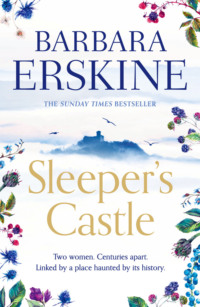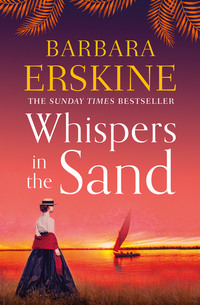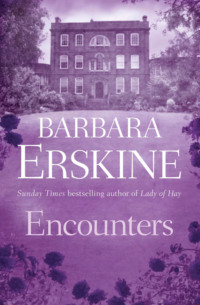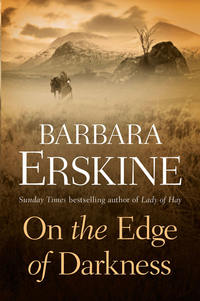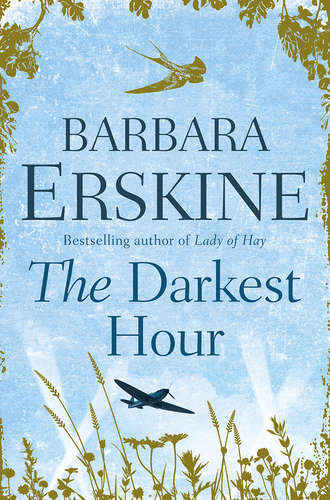
Полная версия
The Darkest Hour
Since she was a child Evie had kept her diary under her mattress. She did not think her mother would snoop in her bedroom but she was not taking any chances, and especially not now with the new glorious secret which had overwhelmed her every waking second. She was in love, deeply and overwhelmingly in love. She could not get the thought of Tony out of her head. Everything she did on the farm, every moment she was awake she was thinking about him and at night she dreamed of him as well. And now, overwhelmed with worry, she hadn’t seen him to speak to for three days even though she had biked down to Westhampnett early and spent the whole day loitering round the airfield under the pretence of making sketches. No, not pretence. She was sketching but she had been distracted every few minutes by the possibility that he would appear. He had been declared fit to fly by the local doctor and was once again on operational standby. The squadrons were in constant action, flying out on sortie after sortie. Their lunchbreak never happened and tea was being made for them out in the dispersal huts with the WVS ladies taking their van over to them as they waited for refuelling. She saw Tony in the distance twice and each time he grinned at her and waved, but he was with the other pilots and she knew better than to interrupt or draw attention to herself.
It was nearly six o’clock when Eddie drove down to the airfield, left his car by the gate and strolled in past the guard.
‘Evie?’ He stood beside her and looked over her shoulder at her sketch. It was rudimentary, concentrating on Tony, one face standing out amongst several others who were mere outlines. He made no comment. ‘Your mother asked me to come and fetch you,’ he said after a moment. She had not looked up to greet him ‘You are late for milking and she said you hadn’t done any of your chores today. She is worried.’
Evie scowled. ‘I’ll come back when I’ve finished this.’
‘No, now, Evie. It’s late.’ Eddie saw the guard from the perimeter gate heading his way and groaned. ‘Now they are going to tell me off for coming in here. The security is appalling on this airfield. I should make a complaint to higher authorities. Only that would stop you coming down here too.’
Evie looked up at the implied threat. ‘You wouldn’t.’
‘I don’t want to.’ He sighed. There was no point in putting her back up even further by mentioning his feelings about her visits down here to sketch Tony. ‘Come on, Evie.’
‘I didn’t realise the time. I’ll collect my bike.’
‘Leave it. It will be perfectly safe. I’ll run you back to save time.’
‘No!’ Evie snapped. ‘I’ll come when I’ve finished.’ She didn’t want to speak to Eddie. She didn’t want to see Eddie. She wished she had never made love to him. If it wasn’t for his role in furthering her career, she would tell him to go away and never come back. Whatever she had felt for him in the past was nothing compared to what she felt for Tony. Her whole body yearned for the young airman in a way she had never experienced before. She was overwhelmed with longing. In contrast the thought of getting into the car with Eddie was suddenly repugnant to her.
Eddie leaned across her and took the sketchbook and pencil out of her hand. ‘You will come now, Evie. I promised your mother.’ He frowned at her as she rounded on him.
‘No!’
He held up his hand before she could protest, his temper barely in check. ‘Have you any idea just how worried she gets when you are down here? You are in danger every second you are here. The Germans aim for the airfields, you know. I am amazed the CO lets you come here at all. Your mother is frantic about your safety. She doesn’t say anything because she knows you want to do your bit for the war effort, but you owe it to her to come home when you say you will. It is bad enough for her to have to worry about Ralph all day every day, up there.’ He gestured towards the clouds where a dozen or so planes were circling ever higher, small black dots heading suddenly towards the horizon as a message from ground control sent them on the right vector to encounter the enemy.
She slumped back onto her seat on the old oil drum which had become her favoured perch. ‘I’m sorry. I didn’t think.’
He smiled at her ‘No, well, you have now. So let’s get back and put her out of her misery at least as far as you are concerned, OK?’
Wednesday 17th July
Dolly had given Lucy the address of the Lucas farm and the following afternoon Lucy drove the half dozen or so miles to the village of Chilverly, taut with anticipation. Pausing in the village to squint at her road map she turned the car up a narrow lane on the far side of the village and drove the few hundred yards to the gate at the end. There she parked and climbed out. Box Wood Farm. Evie’s parents’ farm, the home Evie had known for so much of the early years of her life. And Ralph’s home too. She shivered. She stood for a moment on the gravelled driveway studying the front of the building, aware of a sudden lump in her throat. It was a lovely traditional farmhouse, lying in the golden sunshine in a gentle basin in the Downs, the upper storeys white-painted and timber-framed, the ground floor a soft terracotta, built with ancient lichen-stained bricks. It had been separated from its land many years earlier, Mike had mentioned, and now boasted only an acre of beautiful gardens and an orchard, but, beyond the gardens, the downland fields were still populated with sheep as they must have been in Evie’s day, the short-cropped grasses interspersed here and there with patches of woodland. The front of the house was curtained with wisteria and the door decorated with urns full of geraniums and variegated ivies. Overhead swallows were threading the air with high-pitched twitterings as they swooped overhead much as they had done in Evie’s day.
The door opened and a tall, thin woman appeared on the steps. ‘Lucy Standish?’
Lucy took a deep breath and smiled. She walked forward, hand outstretched. ‘Mrs Chappell? Thank you so much for agreeing to let me come.’
Elizabeth Chappell was older than she had first appeared, nearer seventy than fifty, Lucy guessed, but her fine bones and English rose complexion gave her a glow of youth which Lucy doubted she would lose even in her eighties or nineties. She followed her through into a large elegant kitchen and stared round.
Elizabeth smiled. ‘A farmhouse kitchen, which it really was when we bought the house. The place was a tip. We didn’t buy it from Evelyn Lucas of course. There had been at least two other owners in the intervening years, but I like to think she would recognise it again now.‘
Lucy looked round at the butler’s sink, the dark green, four-oven Aga, the handmade cabinets, and secretly doubted if Evie would have recognised it at all. She knew Evie’s kitchen at Rosebank Cottage and she didn’t think this elegance was Evie’s thing. But then it would have been Evie’s mother’s kitchen in those days and she didn’t know anything about Rachel. Not yet. There was no mention of her in the letters so far, no clues as to what Rachel was like at all. She had only discovered Evie’s parents’ names from an offhand remark of Mike’s and then in Dolly’s helpful little list.
It was rather like being shown round by a house agent. Elizabeth Chappell gave her the whole tour, room by room, finishing at last in the attic.
‘I understand this was Evelyn’s studio,’ she said as they went in. It had been laid out as a children’s playroom, complete with a model railway on the floor. ‘The grandchildren,’ Elizabeth said over her shoulder. ‘They live in London but they love coming down here. It keeps them amused all day.’
Lucy smiled. ‘I can imagine. It looks very inviting.’
Where was Evie? Where were the echoes, the memories, the hints of the room’s artistic past? The beams were still there but the walls between the stud framing of the roof were a pale blue, the floor had been sanded and sealed to a golden tan and the windows and skylights had new wooden frames with locks on their elegant ironwork latches.
‘I don’t suppose Evie haunts this house?’ Lucy asked tentatively. Or Ralph, she added silently. Why was it she felt compelled to ask that wherever she went? She softened the question with a rueful smile, implying that she was joking.
To her astonishment Elizabeth nodded, her face suddenly taut with anxiety. ‘It is strange you should ask. We have often wondered. There are footsteps sometimes, you know, and Georgie, that’s my eldest grandson, who was about seven at the time, said he could smell paint up here. Can you smell paint?’ She held Lucy’s gaze for a moment. ‘No. Neither can I, but occasionally Georgie says it was very strong and oily. We took him to an art shop and he identified the smell as oil paint. None of us is artistic so he wouldn’t have smelled it here, and the house itself was redecorated a while ago and anyway house paint smells nothing like oil paint.’
Lucy felt a jolt of unease deep in the pit of her stomach. ‘No one is afraid, though?’ she asked cautiously.
There was a moment’s silence. ‘Not of the smell, no.’ Elizabeth put her hand up to the necklace she was wearing over her cotton sweater and twisted it nervously. She had moved away from her visitor and was standing by the train track staring down at it as if lost in thought. I’m often alone here,’ Elizabeth went on at last. ‘My husband travels a lot.’ She paused, as if regretting that she had said too much.
Lucy hesitated. ‘My husband died a few months ago,’ she said at last. ‘I know how it feels, being alone.’
‘My dear, I’m sorry.’ Elizabeth looked at her as if seeing her for the first time. ‘So you understand. He’s supposed to have retired but he runs a consultancy, advising people on buying overseas properties, and,’ she hesitated for a moment, then continued softly, ‘when I am here by myself, at night, sometimes I think I can hear people in the house. It is a big house for one person.’ She gave an awkward smile. ‘When it is full of family and children and my daughter’s dogs it comes alive, then it belongs to us. But when I am by myself I am sure it still belongs to the Lucases. They were here for generations, you know.’
For a moment Lucy was stunned. ‘But you said there were other families here in between,’ she said at last.
‘Yes. And of course it could have been them.’ Elizabeth shook her head. ‘But it isn’t. Evie’s brother was killed, you know, in the Battle of Britain. There’s a memorial to him in the village church. I think his mother went mad with grief.’
Lucy held her breath, staring at her in horror, intensely aware of the silence around them.
‘I hear her crying,’ Elizabeth went on almost under her breath. ‘I tell myself it’s the wind in the chimneys, perhaps an owl screaming into the night, but it isn’t. It’s Rachel. I sometimes think I can’t bear it.’ She gave a small wistful smile. ‘I’m sorry, my dear. You must think I’m ga-ga.’
‘How do you know it’s Rachel?’ Lucy asked at last. Her voice was husky.
‘I just know.’ It was a whisper. She shuddered. ‘Let’s go downstairs. Do you mind? I’ll make us some tea. Then you must see the outbuildings.’ Suddenly her voice was stronger. ‘They were all farm buildings in Evie’s day and I think you’ll see they have probably changed much less than the house has. In fact I doubt if they have changed in hundreds of years. The land itself is all owned by a huge company now. There is a farm manager who lives on an estate the other side of Chichester.’
Lucy followed Elizabeth down the two flights of stairs back into the kitchen. While they waited for the kettle to boil on the Aga Elizabeth disappeared into the old-style walk-in pantry to find some biscuits and Lucy stared round the room. With part of herself she was listening, afraid she was going to hear Rachel’s cries.
The kitchen was immaculately tidy. There had only been one car outside, a smart new Mini. It was obvious that Elizabeth’s husband must be away on one of his trips. The woman was living alone in the house with nothing but the ghosts of the past for company.
She looked up as her hostess put the plate of biscuits in front of her. ‘Do people in the village remember the Lucases?’ she asked, trying to change the mood.
Elizabeth shook her head. ‘I doubt it. I don’t know. To be honest we don’t mix with the village much any more.’ She reached down the teapot from a shelf and set it on the hotplate to warm.
‘But your family come down to see you?’ As soon as she had said it Lucy regretted it. She had already guessed what the answer would be
‘They used to. All the time. But they have other calls on their time now. The children have grown out of the countryside. They want to go abroad or spend the holidays with their friends. You know how it is.’ Elizabeth helped herself to a biscuit and broke it in half, scattering crumbs on the pine table before putting it down without tasting it. She didn’t seem to notice. ‘There was a time when I could have offered you a homemade biscuit. Not any more. It’s not worth making them just for me. I bake when there is something on in the village of course. I do my bit, but even that has been taken over now by young families. The mothers are very energetic, very bossy,’ she laughed quietly. ‘They like to do things their way.’
Lucy’s heart went out to her.
Behind them the kettle began to whistle. Elizabeth stood up abruptly and went over to the Aga. She made the tea and came back to the table. ‘There you are, my dear. I am so sorry; you must think I am pathetic. Drink that, and then we’ll go outside. I love my garden. It’s mine. Out there I have no sense of Rachel at all. Out there I feel as if I still have a use in the world. I’ll show you.’
Rachel. Once more she was talking about Rachel. Only in the studio was there an echo of Evie left behind.
Конец ознакомительного фрагмента.
Текст предоставлен ООО «ЛитРес».
Прочитайте эту книгу целиком, купив полную легальную версию на ЛитРес.
Безопасно оплатить книгу можно банковской картой Visa, MasterCard, Maestro, со счета мобильного телефона, с платежного терминала, в салоне МТС или Связной, через PayPal, WebMoney, Яндекс.Деньги, QIWI Кошелек, бонусными картами или другим удобным Вам способом.



